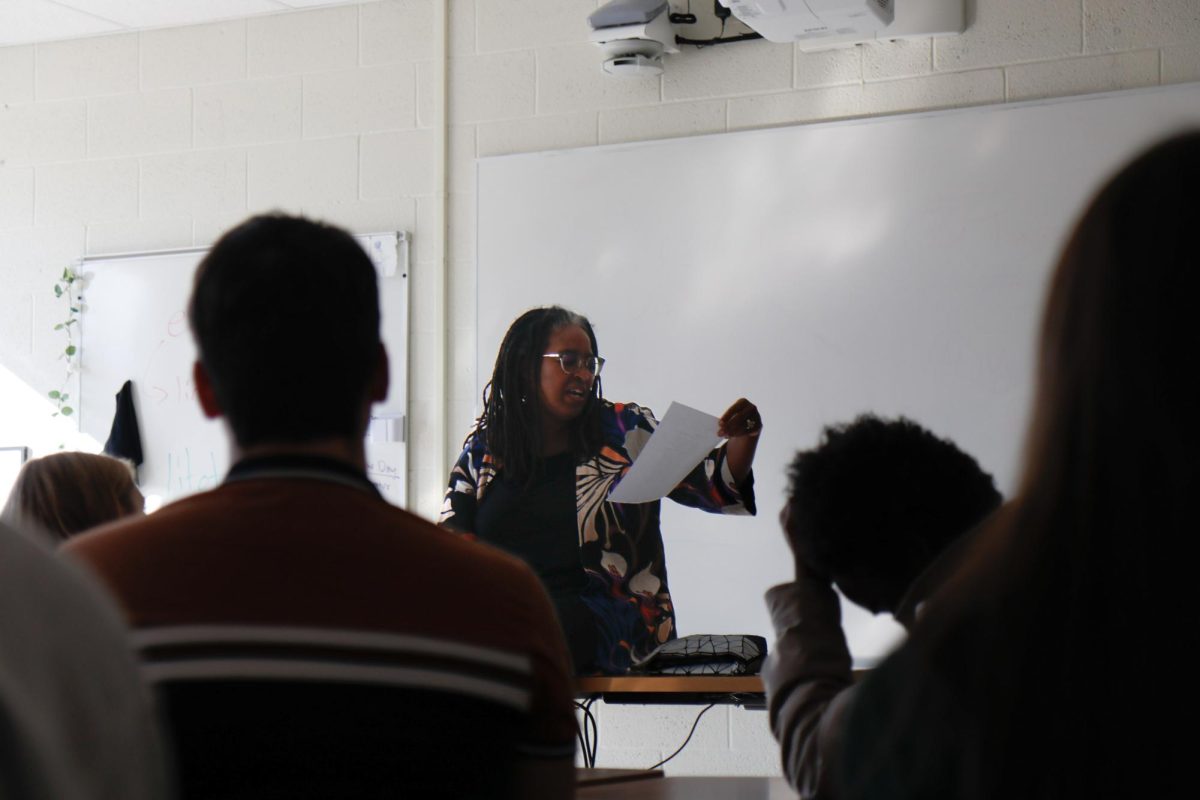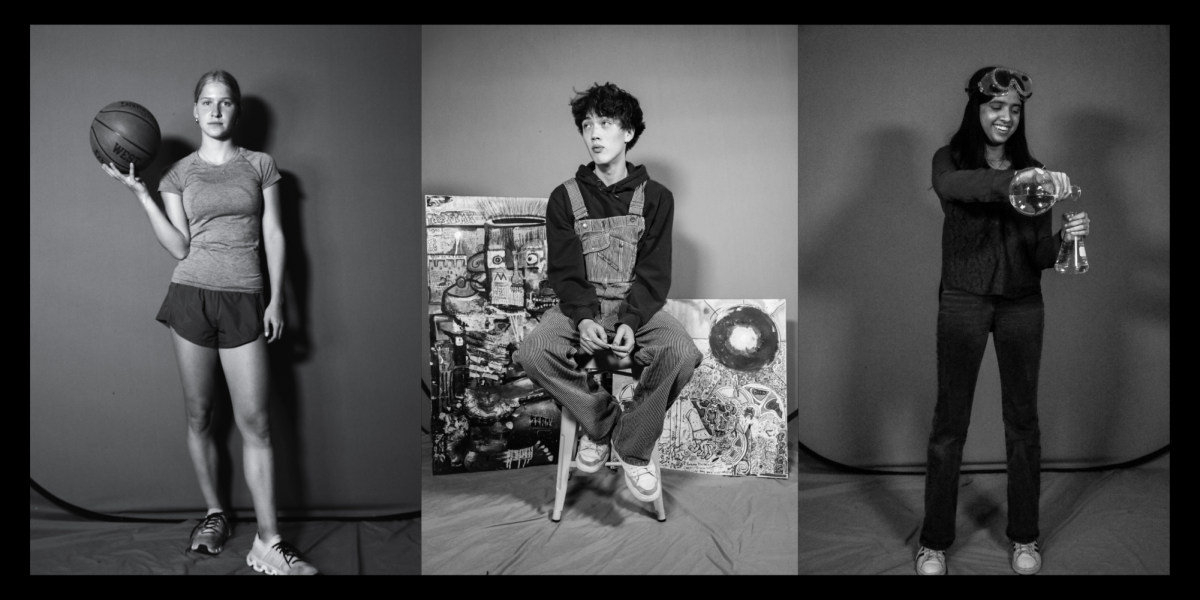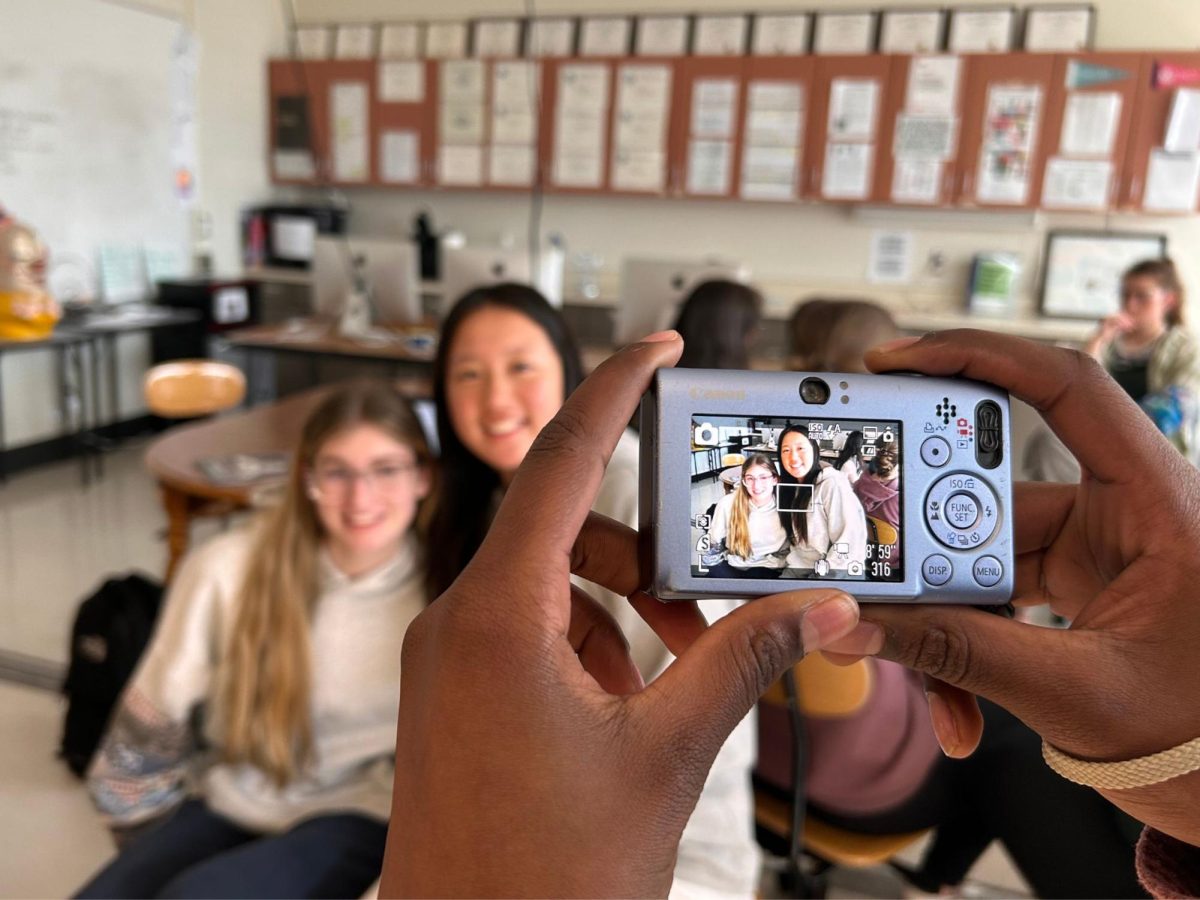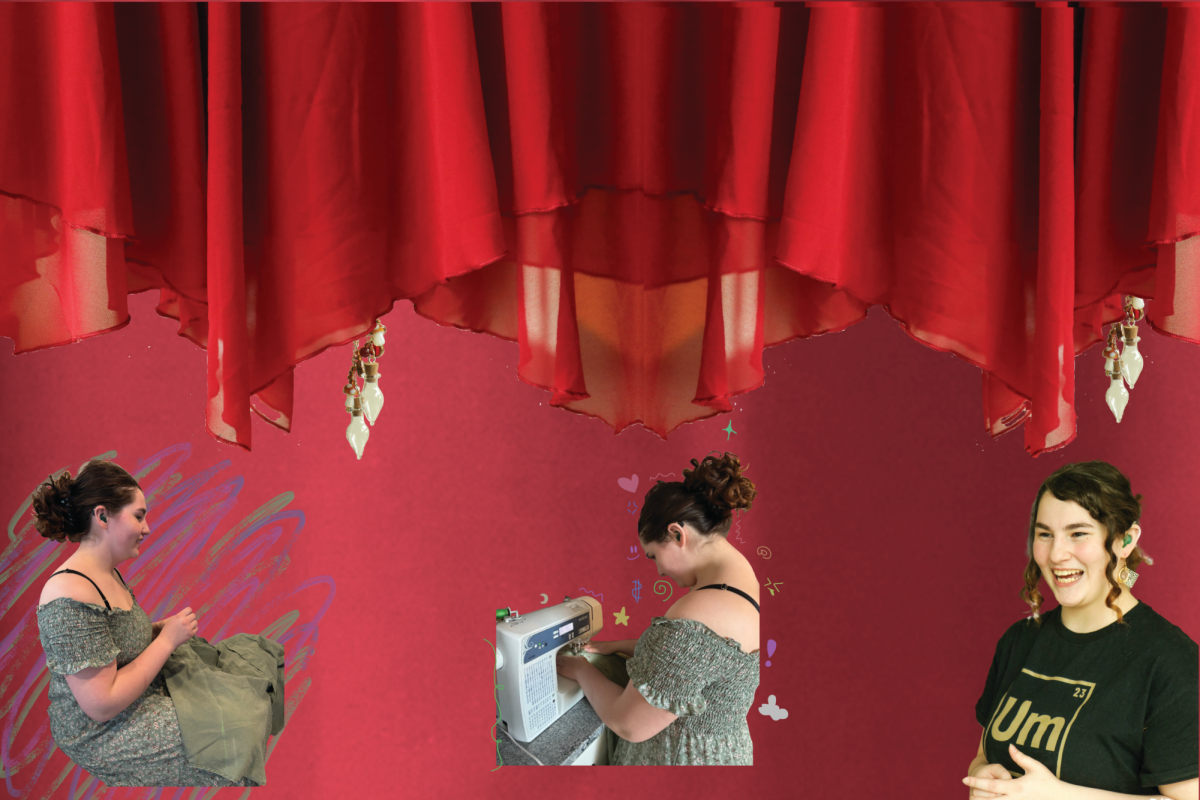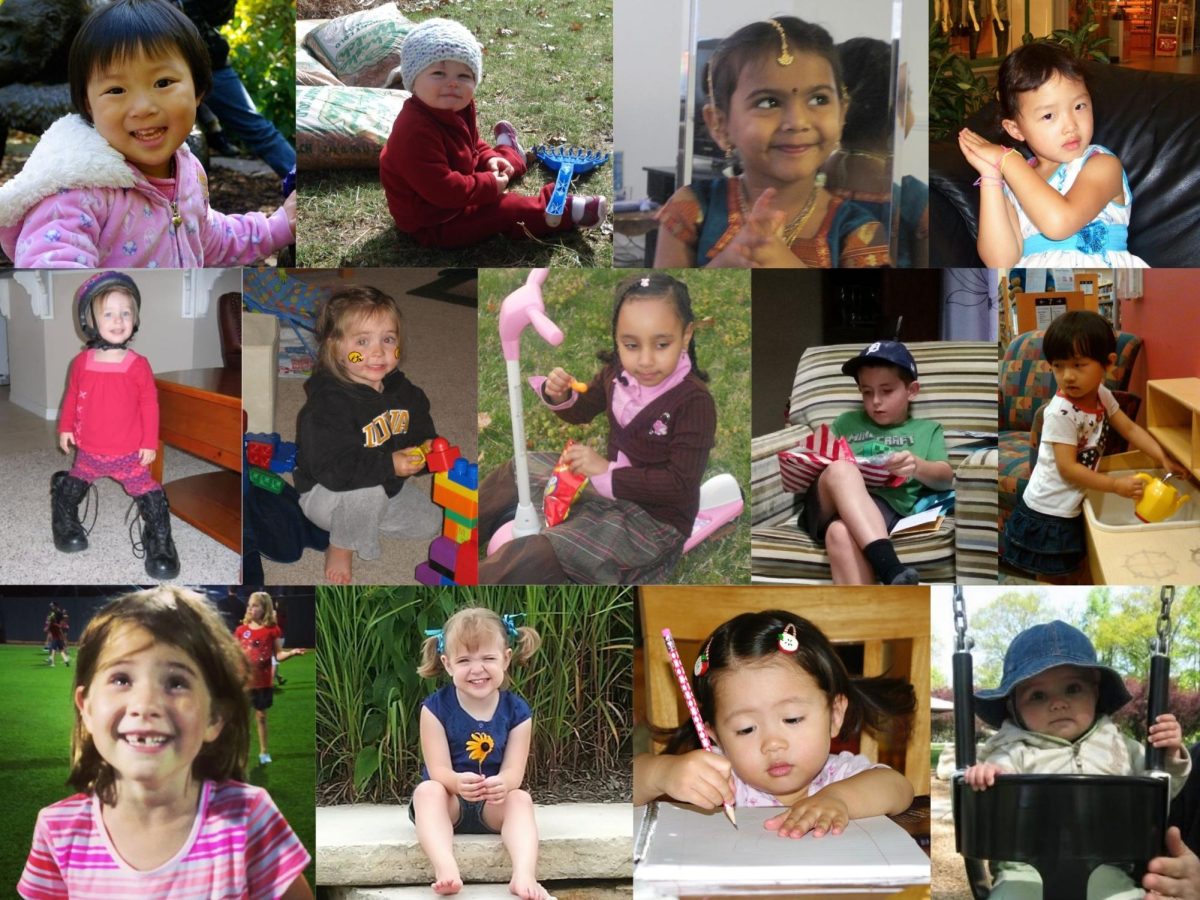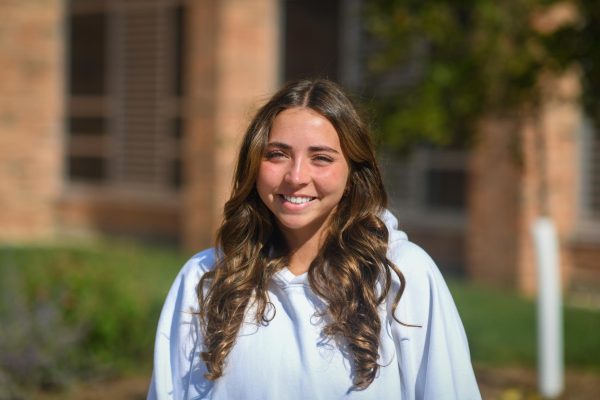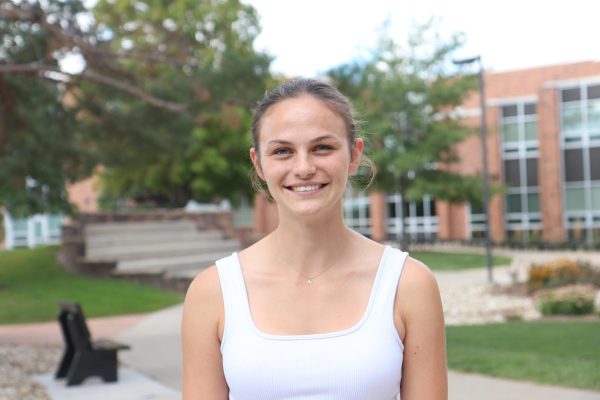Once upon a time…
Most students haven’t written, or even seen, this cliché opening to a story in their high school curriculum. Though creative writing is emphasized in elementary school, it often fades into the background as students enter middle and high school. However, Iowa City, home of the renowned Iowa Writers Workshop, is the United States’ first city to be designated as a UNESCO City of Literature, bringing together writers from across the world to create and share their stories.
However, for some, storytelling is just the beginning. Eva Esch ’25 rediscovered her love for writing after taking West’s trimester-long creative writing class her junior year.
“I’ve always liked to write [for] as long as I can remember,” Esch said. “My favorite form of writing [was] making up stories. But when I took Mr. Robins’ creative writing class, I discovered so many more ways to go about [writing] and how different it can be, so then I really started to love it.”
Darien Robins, West’s creative writing teacher, had a similar experience with writing; his initial interest deepened as he immersed himself in creative writing.
“I wanted to be good at English because the more I can read, the more I can write; the more I can understand, the more I can speak; the better friend I can be, the more observant member of society I can be,” Robins said. “Taking creative writing classes seemed like a part of developing those skills, and along the way, I developed a love for storytelling.”
Having discovered unique styles of creative writing at school, Esch urges other West students to get involved, even if they are not immediately interested in it.
“Everybody should try creative writing at least once. It doesn’t matter if you’re good at it or not, because it’s a lot of fun. It helps you build skills to use in other types of writing that are more applicable in a school setting,” Esch said.
Similarly, Robins notes that skills acquired from creative writing can be directly applied to English curriculum standards.
“One of the state’s [English] standards is your ability to write creatively and imagine stories. That’s the most human thing. It’s really valuable to be able to imagine your own story, to be artful with your language and [to be] precise, vivid and funny with it,” Robins said.
Robins is enthusiastic in trying to make his class valuable to students regardless of their interest in pursuing creative writing in the future.
“I teach creative writing because it feels like the best way to talk about what language does for us. I teach it in a way that is meant to ensure, whether you love writing or are just here for an elective, you feel like you’re getting value that you can use immediately,” Robins said. “The second you turn to your peers and start talking to them, you are using the skills that we’ve been talking about.”
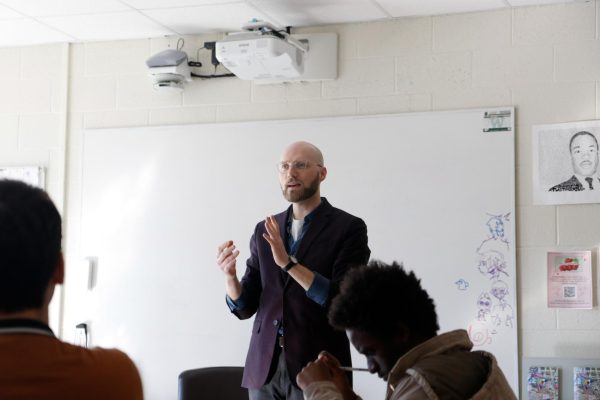
As opposed to Esch’s rediscovery of her passion after taking a creative writing course, Shreya Khullar ’22, a current student at Columbia University studying English, first pursued creative writing because she was an avid reader.
“Reading is a fundamental part of a writer’s education,” Khullar said. “[My interest] started with reading, and then I joined an online high school magazine called Polyphony Lit. That was my spark of ‘Oh, people my age are also engaging with creative writing, and they’re really good at it.’ It was truly inspiring to read what other high schoolers were writing. That made me think maybe I could do it too.”
Khullar then took an English class with Robins, who encouraged her to follow her passion and continue writing.
“Most of what I was doing was independent from West, except for working with Mr. Robins,” Khullar said. “I’d send random stuff that I wrote to him, even if it was really bad, and he’d be like, ‘This is good. This is not so good. This is how we can shape it to be more of what you want it to be.’”
Though Khullar gained valuable skills from Robins’ mentorship, she finds that taking creative writing courses doesn’t suit her writing style.
“[Creative writing courses] can be very helpful for some people, especially if the writer needs deadlines to get things done; it induces them to actually produce work,” Khullar said. “I find prompt-writing and any formal constrictions on creative writing to be restrictive and not necessarily inducing creativity for me.”
However, Khullar acknowledges that creative writing coursework can be the push some people need to get started.
“It can definitely be engaging for students to have creative writing assignments rather than analytical, essayistic assignments,” Khullar said. “Some of that is definitely valuable because it entices students, who maybe have never attempted to write creatively, to figure out ‘Oh, maybe this is something I really like and may be good at.’”
This applied to Esch, who joined West’s Creative Writing Club (CWC) after finding her interest in creative writing through the class she took. Now as the club leader, Esch creates prompts and organizes activities for members to participate in during meetings. Additionally, CWC encourages students to publish their creative writing by working with West’s art and literary magazine, Grapevine. Noting the community aspect of CWC, Robins highlights the club’s ability to help students prioritize their writing by designating a time to write with others.
“[Creative writing] can be a very individual task or lonely hobby. You’re sitting alone and writing, but the goal of Creative Writing Club is to give you space, to hold yourself accountable and know that other people are doing it too,” Robins said. “On Fridays, we just write. Joining the club is a way to start building that into your life.”
Khullar agrees, noting the communities she has established are responsible for her continued interest in creative writing.
“[Writing with others] has been tremendously influential. What’s more important than sending people my work and engaging in a workshop is being able to talk to people who have the same interest as me about why this is interesting to me, what is valuable [and] what books we’re engaging with,” Khullar said. “The intellectual stipulation of having a community that is both pushing you to do things further but also reassuring and reaffirming [you]… has been so influential.”
Deeksha Raghavan ’25, the editor-in-chief for Grapevine, emphasizes that, apart from writing, Grapevine offers diverse opportunities for all.
“In Grapevine, you’ll design a couple of things, because it’s an artistic [publication],” Raghavan said. “You want to catch people’s eyes; the poster is artistic. You have to get people to notice you, which is fun. You have to advertise and talk to teachers. I like advertising for it because people know about you, and a lot of people are like, ‘Oh, that’s really cool.’”
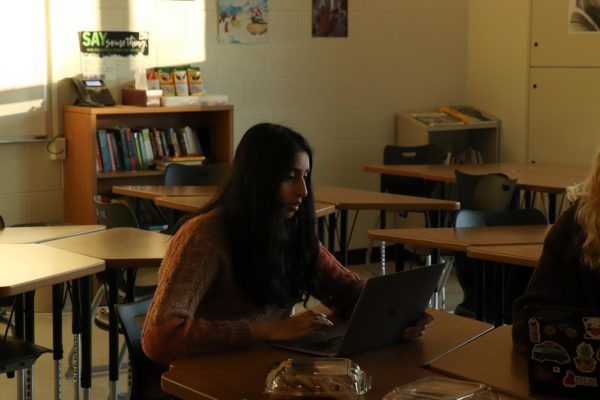
Though there are many opportunities within Grapevine and CWC, Robins encourages students to try creative writing because of its universality.
“I’ve had a handful of students find [CWC’s] rhythm is really good for them. Writing is a core human thing. It makes us feel good because it’s one of the things that defines our species,” Robins said. “It’s like playing a sport. Sports are part of our core, and it feels good to play them. We can say we don’t like them, but [if you] convince that person to try playing a sport, they will like it.”
Additionally, Esch notes that CWC also has opportunities for students looking to compete in writing competitions or for scholarship opportunities.
“[Creative writing] is a lot of fun, and, through it, you can learn about some of the smaller competitions, because those have cash rewards a lot of the time, and that can go towards scholarships and colleges,” Esch said. “Not only is it a good experience to write towards a goal, but you can get something out of it too.”
Khullar agrees, encouraging students interested in creative writing to submit their pieces to the Scholastic Art and Writing Awards, one of the nation’s longest-running and most prestigious youth writing competitions.
“[Submitting to competitions] was really helpful for me to see what other people, not just in Iowa City, but across the country were working on,” Khullar said. “If you do well, you go to the state, then national [competition], which is in New York. [It’s] such a cool program.”
Though there are many national opportunities for students to participate in, there are also many locally. A UNESCO City of Literature designation is based on many principles, including “quality and quantity of educational programmes focusing on domestic or foreign literature at primary, secondary and tertiary levels.” The University of Iowa provides many opportunities, such as the Iowa Youth Writing Project, alongside opportunities offered by the city, like programming by Prairie Lights, a world-renowned bookstore, and programs like Iowa City Poetry or IC Speaks.
As such, Iowa City provides ways for students of all ages to get involved with creative writing. Rachael Carlson, the Director of Operations for Iowa City UNESCO City of Literature, emphasizes opportunities for students to get involved in. She notes that, like CWC’s scholarship opportunities, Iowa City offers many competitions with monetary awards.
One such award is the Paul Engle Prize, which recognizes a writer who “represents a pioneering spirit in the world of literature through writing, editing, publishing, or teaching, and whose active participation in the larger issues of the day has contributed to the betterment of the world through the literary arts.”

Camille Dungy ’91 was awarded the 2024 Paul Engle Prize, making the West grad the 13th recipient of the prize. Dungy received the award at 7 p.m. on Nov. 14, at the Coralville Public Library.
“The award is given to people not for an individual book, but for a life lived as a writer,” Dungy said. “It feels super special to me coming from Iowa City because Iowa City taught me how to [live as a writer]. I’m getting recognized for doing the thing that I learned how to do, in the place where I learned how to do it.”
To read more about Dungy’s experience as a lifelong writer, reader and teacher, read her first-person narrative here.
The Paul Engle Prize’s high school counterpart, the Paul Engle Glory of the Senses Essay Contest is awarded to an Iowa high school sophomore for writing about their “Iowa experience.” Carlson notes that students shouldn’t overlook local opportunities like it.
“For high school students in particular, the Glory of the Senses Essay Contest [has a] top prize for a year of tuition at the University of Iowa. It’s one of the biggest paydays you can get for three pages of writing,” Carlson said.
As a kid, Raghavan took advantage of these programs by participating in youth camps hosted by the University of Iowa.
“I used to go to the Iowa Youth Writing Project clubs all the time, and I think that really did cement my interest. There are a lot of resources, if you know where to look, that can get you interested in writing,” Raghavan said. “When people talk about Iowa City being the capital of writing, that makes people more inclined to write, because they’re like, ‘Oh my gosh, we’re in the capital.’”
Carlson reflects a similar notion; Iowa City makes writers, and writers make Iowa City.
“It feels like every single person here is a writer in some aspect. You go to the grocery store, they write; you go to the hardware store, those people are writers or readers. When you live here, you can’t help but be involved or be influenced by it,” Carlson said.
Carlson is consistently impressed by the knowledge and insight of community members.
“When you attend a reading in Iowa City, it’s different than other places because the audience is the smartest ever,” Carlson said. “They ask amazing questions that you didn’t even think about. [Just] being a fly on the wall is fulfilling.”
Furthermore, Carlson notices the prevalence of writers strengthens other aspects of art.
“[Literature] is in the air here. Everyone is a writer or appreciates writing; that’s the important part of being a City of Literature,” Carlson said. “Sure, we’re a City of Literature because of the writers, but we’re also a City of Literature because of the readers. There aren’t a lot of cities where people take [reading] so seriously, appreciate writing and understand why it’s important to our community, and come out and support these writers. [Living] here is really rewarding [because] it’s not just writing, it’s all of the arts in Iowa City.”
Map courtesy of Iowa City UNESCO City of Literature
For some, Iowa City’s deep roots in creative writing aren’t so obvious. When Robins initially visited Iowa City, he was surprised by the subtlety of the city’s writing ties. Only after living in Iowa City did he begin to notice how writing influences the community.
“[Iowa City’s] literary scene is under the surface. I don’t think there is a better English department in the Midwest than West High’s. We have very devoted practitioners and masters of their craft here because the best writing teachers want to live in the writing town. We have more students who are at least pretty passionate about it because they had teachers who inspired them and maybe have more connections to the professional writing community,” Robins said. “If you throw a rock [in Iowa City], you’ll hit a writer. About half the time, that rock will hit someone famous. I’d like to see [the writing scene] become more present in students’ lives.”
Robins’ hope for expanding the writing scene is intertwined with his hope that students make time for their own passions.
“There is a lot of stuff about living in 2024 that is like a gas; it fills any space that you put it into. Owning a phone, it’s like gas; it fills up time in ways it doesn’t even need to. Generally, stuff fills your time, and you have to intentionally create time for this very solitary activity,” Robins said. “There will always be obligations weighing in on you. There will always be things that are very time-oriented pushing at you. There are so many valuable, wonderful things in this world that don’t function that way — that aren’t going to have an alarm ringing — and we have to tell the alarms to shut up sometimes to do the things that don’t have that weight, that pressing quality.”
Although creative writing is one of the values Robins tries to prioritize, he notes that it isn’t the product but rather the process that is most important to him.
“Storytelling comes second to the everyday value of language and narrative-making; I’m telling my own story to myself, and being good at telling that story in a way that’s kind to me and that’s accurate and thoughtful is really important,” Robins said. “I love making stories too, but I love the craft; I love what [creative writing] does in my everyday [life].”
Robins considers the dynamic quality of creative writing the reason behind his personal growth as a writer.
“I love writing because it lets me try again,” Robins said. “When I was studying music, I was really anxious because I felt like every performance had to be perfect. [But] when I was writing, I was trying to dig to perfection. Instead of constantly be[ing] perfect, I was in the process of looking for something, and I could be in that process for a while.”
Similarly, Raghavan believes that the process is what keeps creative writing engaging.
“When I sit down to write, it’s a culmination of a lot of things I’ve read, things that stick in my mind,” Raghavan said. “That’s fun, taking from books that you’ve read. [Creative writing] is a place where you can funnel all of that knowledge into something that you create.”
This knowledge, Raghavan notes, is determined by not perfection but effort.
“Even if you think you’re not a good writer, just write because you can. Everybody can talk, so [everybody] can write,” Raghavan said.
Similarly, Carlson took away one guiding principle from her experience with writers.
“People ask [advice] of authors a lot, and the one thing they always say is you need to write. You need to write every day. Just do it, no matter what,” Carlson said.




